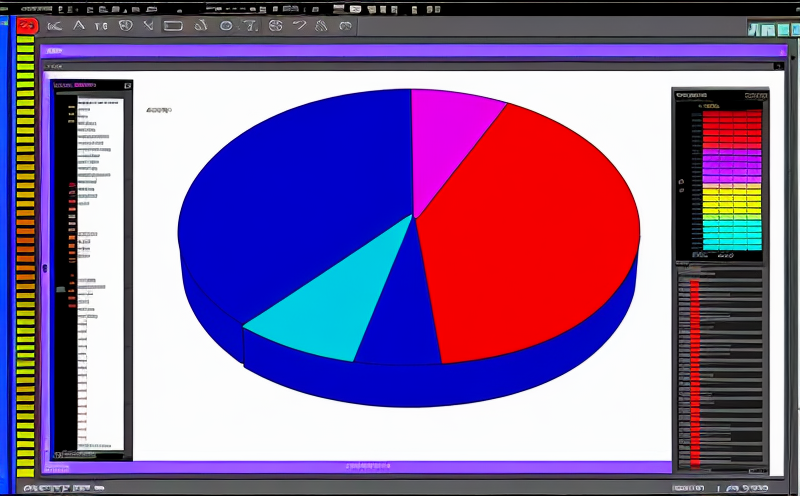ASTM D6797 Thermal Expansion Analysis of Adhesives
The ASTM D6797 standard specifies a method for determining the linear coefficient of thermal expansion (CTE) of adhesives over a specified temperature range. This test is critical in ensuring that adhesive materials perform reliably across varying environmental conditions, particularly in high-temperature or cryogenic applications. Understanding CTE helps engineers and quality managers predict how adhesives will behave under different temperatures, which is essential for compliance with industry standards and customer expectations.
The ASTM D6797 method involves the use of a differential thermal expansion analyzer (DTEA) to measure the change in length of an adhesive specimen as it is subjected to controlled temperature changes. The analysis typically covers a range from -100°C up to 250°C, though this can be customized based on specific requirements.
Specimen preparation for ASTM D6797 involves cutting a small piece of the adhesive into a standard shape and size (typically a bar or strip). The specimen is then mounted onto the sample holder of the DTEA instrument. The mounting method must ensure that any thermal stresses introduced by the clamping do not significantly affect the test results.
The data collected from the analysis can be used to generate a curve representing the linear expansion coefficient as a function of temperature. This information is crucial for selecting appropriate adhesives in applications where thermal stability and mechanical integrity are paramount, such as aerospace, automotive, and electronic manufacturing industries.
By conducting ASTM D6797 tests, quality managers can ensure that their adhesive products meet the required specifications under various conditions. Compliance with this standard helps in maintaining a high level of product reliability and customer satisfaction.
| Applied Standards | Description |
|---|---|
| ASTM D6797-18 | This standard provides detailed procedures for performing thermal expansion analysis on adhesives. It includes recommendations for specimen preparation, testing parameters, and data interpretation. |
| ISO 4259:2013 | An international standard that specifies the methods of test for measuring linear thermal expansion in plastics and composites. While not specific to adhesives, it provides a broader context on how thermal expansion is measured across various materials. |
Understanding the implications of ASTM D6797 analysis can help in optimizing adhesive performance within industrial processes. For instance, if an application requires an adhesive that remains stable at high temperatures, testing according to this standard ensures that the chosen material will meet those demands.
- Key Considerations: Specimen preparation must be precise to avoid introducing errors into the test results.
- Data Interpretation: Accurate interpretation of thermal expansion data is crucial for making informed decisions about adhesive selection and application.
The ASTM D6797 method is widely used in industries where material performance under temperature stress is critical. By leveraging this standard, manufacturers can ensure their products are robust enough to withstand the environmental conditions they will encounter during use.
Applied Standards
| Standard Reference | Description |
|---|---|
| ASTM D6797-18 | This standard provides detailed procedures for performing thermal expansion analysis on adhesives. It includes recommendations for specimen preparation, testing parameters, and data interpretation. |
| ISO 4259:2013 | An international standard that specifies the methods of test for measuring linear thermal expansion in plastics and composites. While not specific to adhesives, it provides a broader context on how thermal expansion is measured across various materials. |
The ASTM D6797-18 method ensures accurate measurement of the linear coefficient of thermal expansion (CTE) over a wide temperature range. This is essential for predicting and evaluating the performance of adhesives in real-world applications, especially those involving extreme temperatures.
ISO 4259:2013 complements ASTM D6797 by providing additional insights into how materials expand or contract with changes in temperature. Although it is not specific to adhesives, its principles are applicable and enhance the overall understanding of thermal behavior across different material types.
By adhering to these standards, laboratories can ensure that their testing methods are consistent, reliable, and internationally recognized. This consistency is crucial for maintaining high-quality control measures within industries reliant on precision materials.
Why Choose This Test
- Achieving Regulatory Compliance: ASTM D6797 ensures that adhesives meet the required specifications, facilitating compliance with industry regulations and standards.
- Evaluating Material Performance: The test provides critical data on how adhesives respond to temperature variations, aiding in material selection for specific applications.
- Enhancing Product Reliability: By understanding the thermal expansion properties of adhesives, manufacturers can design products that are more durable and reliable.
- Supporting Quality Control: ASTM D6797 helps in identifying potential issues early on, ensuring product quality and customer satisfaction.
The ASTM D6797 method offers several advantages over other testing methods. It provides precise data that can be used to tailor adhesive formulations for specific applications. This precision is particularly important in industries where the performance of adhesives directly impacts product functionality and safety.
Choosing this test also allows companies to stay ahead of industry trends, ensuring they are using the most advanced materials available. By conducting ASTM D6797 tests, businesses can enhance their reputation for reliability and innovation.
Customer Impact and Satisfaction
- Enhanced Product Quality: By identifying potential weaknesses in adhesive performance early on, this test helps improve product quality.
- Increased Customer Trust: Demonstrating compliance with industry standards builds trust between manufacturers and their customers.
- Improved Efficiency: The insights gained from ASTM D6797 testing can streamline production processes and reduce waste.
- Competitive Advantage: Offering products that meet stringent temperature-related performance criteria gives businesses a competitive edge in the market.
The results of ASTM D6797 tests play a crucial role in enhancing customer satisfaction. Customers rely on manufacturers to provide reliable, high-quality adhesives that perform consistently across various temperatures. By using this test, companies can ensure they meet or exceed these expectations, thereby fostering strong customer relationships.
Furthermore, the data obtained from ASTM D6797 testing supports continuous improvement efforts within manufacturing processes. This ongoing optimization ensures that products are not only compliant with current standards but also prepared for future regulatory changes and market demands.





